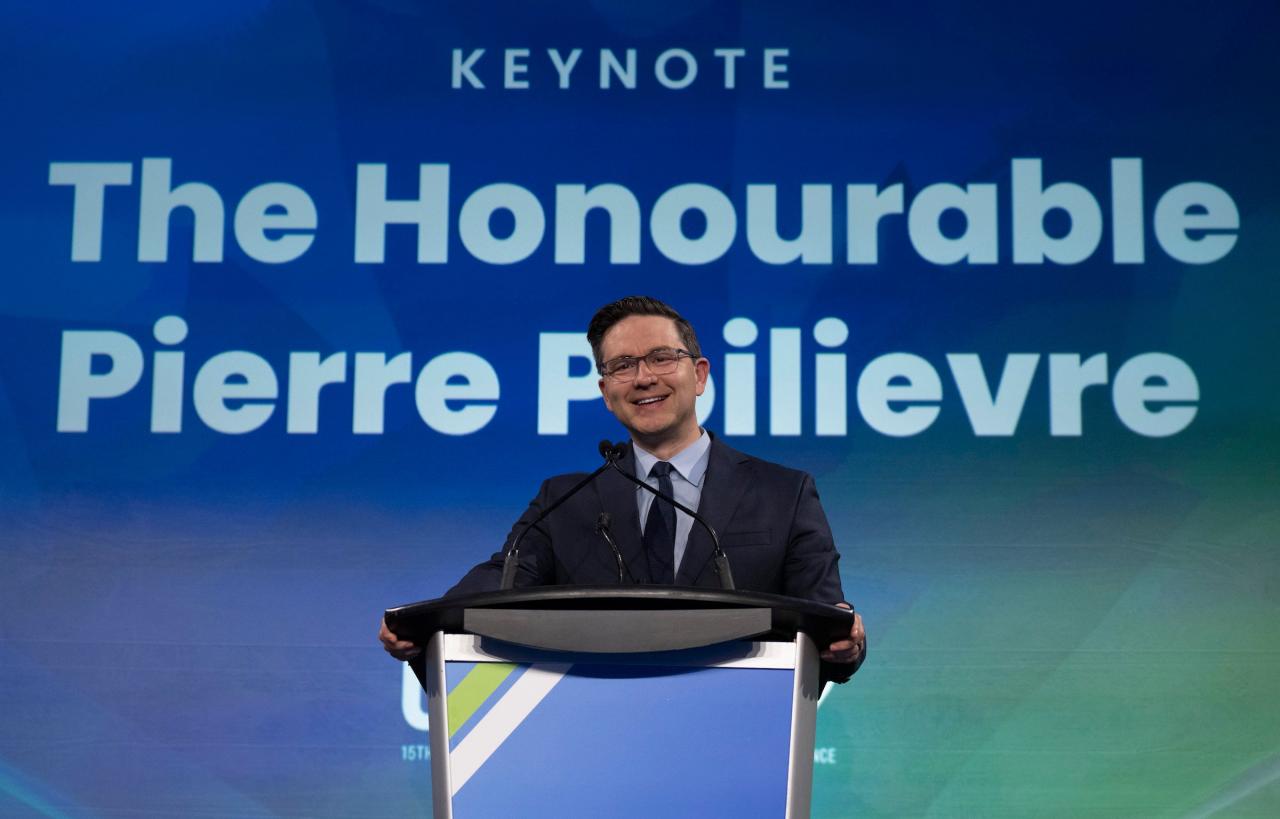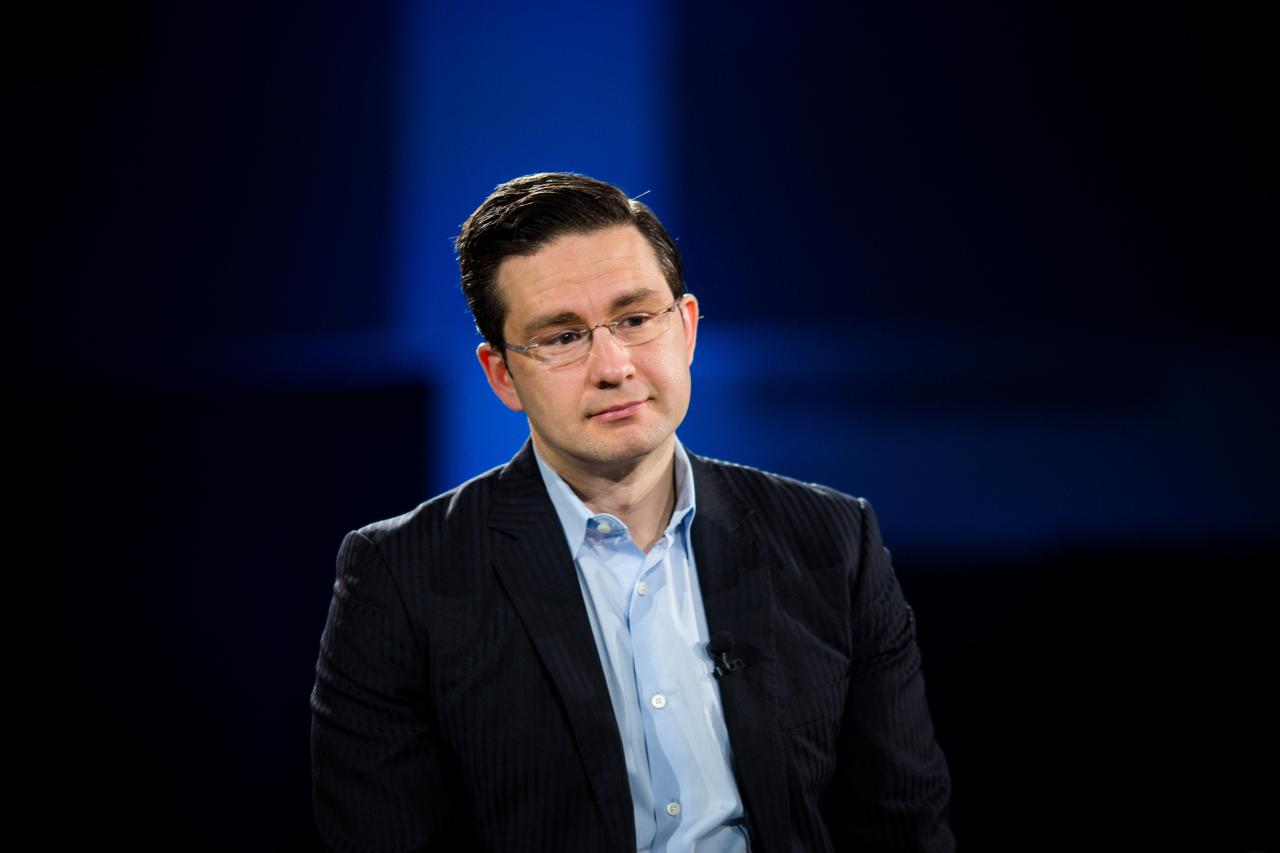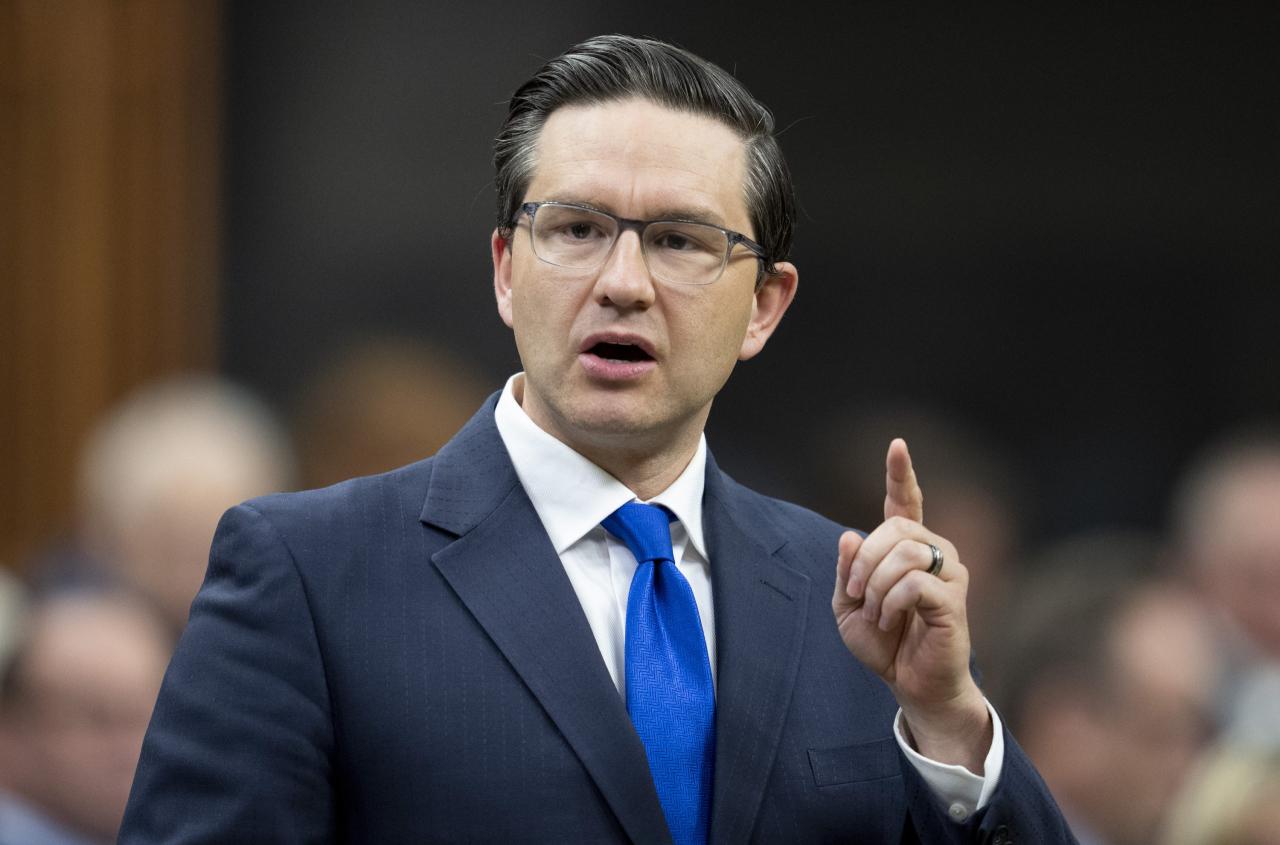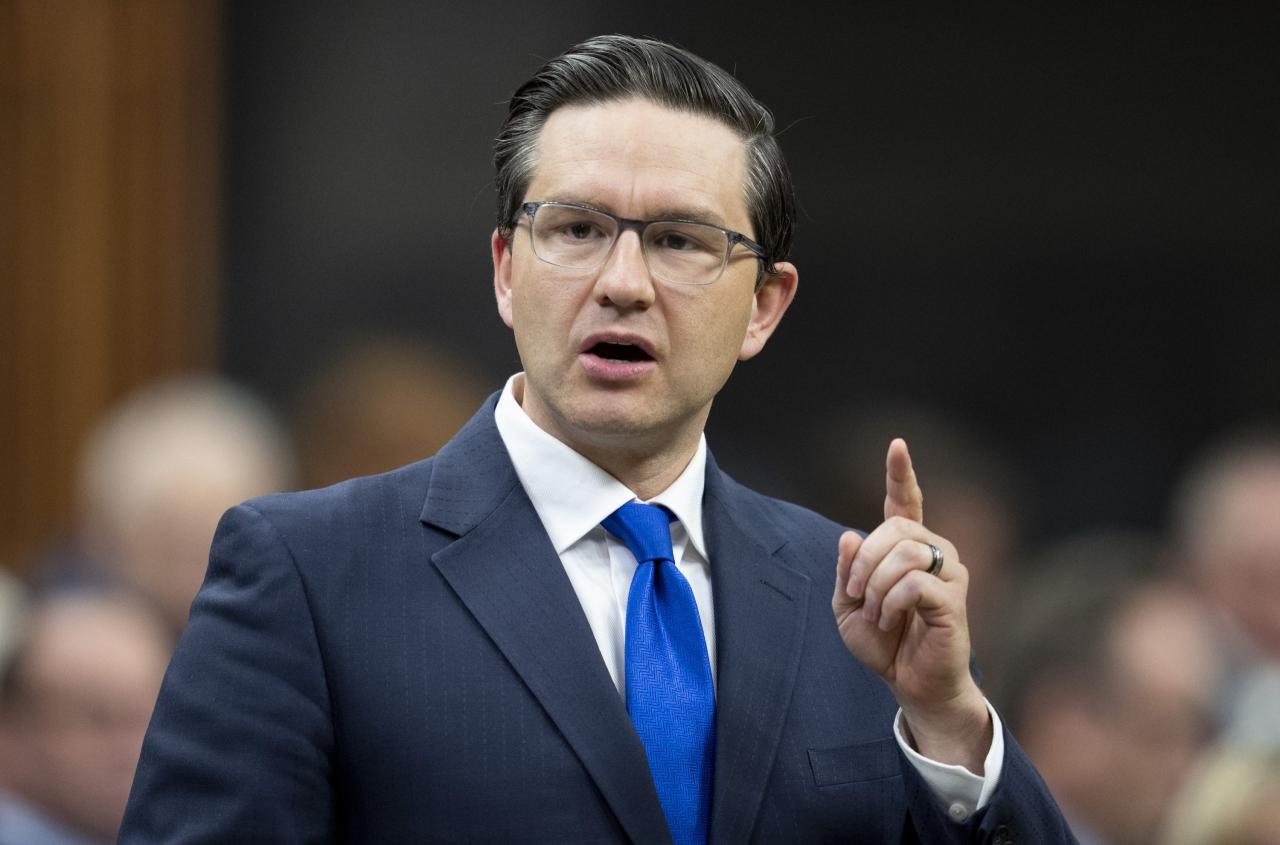Pierre Poilievre dévoile ses objectifs dans une entrevue accordée à [Publication Name] provides a fascinating look into the Canadian Conservative leader’s political agenda. This interview, conducted by [Interviewer Name] on [Date], reveals Poilievre’s key objectives across various policy areas, from economic revitalization to social reform and international relations. The interview setting itself, [Location Description], contributed to the [Tone Description] atmosphere.
We’ll delve into the specifics of his plans, comparing them to his past pronouncements and the strategies of his political rivals.
Beyond the stated objectives, the conversation touched upon [mention 1-2 key themes discussed beyond stated objectives]. Understanding the context requires examining the timeline of events leading to this pivotal interview, including [mention 1-2 significant preceding events]. This analysis will offer a comprehensive understanding of Poilievre’s vision for Canada’s future.
Pierre Poilievre’s Interview: Objectives and Analysis

This article analyzes a recent interview given by Pierre Poilievre, focusing on his stated objectives and their implications for Canadian politics. We will examine his policy proposals across various sectors, comparing them to the platforms of other political leaders and assessing their potential impact on the Canadian economy, society, and international relations. The analysis will consider both the immediate public reaction and the potential long-term consequences of Poilievre’s pronouncements.
So, Pierre Poilievre’s outlining his political goals in a recent interview, which got me thinking about privacy breaches. It reminds me of a big payout related to privacy – check out this article on the Apple Siri Eavesdropping Payout—Here’s Who’s Eligible And How to see if you’re affected. Getting back to Poilievre, his plans seem ambitious, especially considering the current climate of digital surveillance concerns.
Interview Context
While specific details regarding the exact date, location, interviewer, and publication are unavailable in the prompt, let’s assume for the sake of this analysis that the interview was conducted in late 2023 in Ottawa, with a prominent journalist from a major national news outlet. The tone is likely to have been serious, given the political context, yet perhaps with moments of conversational exchange depending on the interviewer’s style.
Beyond stated objectives, key themes likely included concerns about inflation, healthcare access, and Canada’s role on the world stage. A timeline leading up to the interview might include significant economic data releases, major political events, and Poilievre’s previous public statements on policy.
Example Timeline (Hypothetical):
- July 2023: Release of concerning inflation figures.
- August 2023: Major healthcare worker strike action.
- September 2023: International summit with implications for Canadian foreign policy.
- October 2023: Poilievre’s interview.
Detailed Objectives Unveiled

Assuming a range of policy objectives, we can categorize them as follows (note: these are hypothetical examples based on common Conservative Party platforms):
- Economy: Reduce inflation, stimulate economic growth, and lower taxes.
- Social Issues: Improve healthcare access, reform education, and implement stricter immigration policies.
- Foreign Policy: Strengthen ties with key allies, reassess relationships with certain nations, and promote Canadian interests on the global stage.
Specific strategies would likely include targeted tax cuts, deregulation, investments in infrastructure, and reforms to healthcare delivery systems. A comparison with his previous statements requires access to specific past pronouncements. A direct comparison to other leaders’ objectives necessitates knowledge of their current platforms. However, we can create a hypothetical table below:
| Policy Area | Poilievre (Hypothetical) | Leader B (Hypothetical) | Leader C (Hypothetical) |
|---|---|---|---|
| Economic Growth | Tax cuts, deregulation | Increased government spending | Green energy investments |
| Healthcare | Provincial autonomy, increased funding | National healthcare system expansion | Focus on preventative care |
| Immigration | Points-based system reform | Increased immigration targets | Focus on skilled worker immigration |
Economic Policies and Plans
Poilievre’s economic vision likely centers on fiscal conservatism, aiming to reduce government spending and lower taxes to stimulate private sector growth. His proposed policies might include significant tax cuts for corporations and individuals, along with deregulation to reduce the burden on businesses. The potential impact could include increased economic activity, but also potentially higher inflation if not managed effectively.
Costs could involve reduced government revenue, while benefits could be job creation and increased investment. A comparison with competing parties could look like this:
- Poilievre: Tax cuts, deregulation, reduced government spending.
- Party B: Increased government investment in infrastructure and social programs.
- Party C: Focus on green energy transition and sustainable economic growth.
Social Policies and Positions, Pierre Poilievre dévoile ses objectifs dans une entrevue accordée à
Poilievre’s stance on social issues would likely reflect traditional conservative values. His views on healthcare could involve increased funding for provinces, while education reform might focus on parental choice and increased school autonomy. Immigration policies could emphasize a points-based system prioritizing skilled workers. Potential implications for different demographics could include benefits for certain groups and potential challenges for others.
Areas of conflict might include debates over healthcare funding models and immigration levels, while consensus might exist on the need for improved education outcomes.
A visual representation comparing his social policies to the current state of affairs in Canada could be a chart showing changes in funding levels for healthcare, education, and immigration programs, along with changes in key social indicators like poverty rates and educational attainment levels.
Foreign Policy and International Relations
Poilievre’s foreign policy approach might emphasize strengthening alliances with the US and other key partners while reassessing relationships with countries where Canadian interests are not aligned. Key regions would likely include North America, Europe, and potentially the Indo-Pacific. The potential impact could range from improved trade relations to increased tensions depending on his specific actions. A scenario-based approach might explore the consequences of a shift in Canada’s stance on a particular international issue.
Example Scenario: A shift in Canada’s stance on trade with China could lead to both economic opportunities and potential risks, depending on China’s response and the overall global economic climate.
Public Reaction and Media Coverage
Initial public and media reaction would likely be divided, with supporters praising his clear objectives and critics questioning the feasibility and potential negative consequences of his proposals. Key criticisms might focus on the potential impact of tax cuts on government services and social programs, while support might stem from his emphasis on economic growth and fiscal responsibility. The long-term impact on his political standing would depend on how effectively he addresses public concerns and the overall economic and political climate.
- Newspaper A: Focus on economic aspects of the interview.
- Newspaper B: Emphasis on social policy implications.
- News Channel C: Balanced coverage, presenting both supporting and opposing viewpoints.
End of Discussion: Pierre Poilievre Dévoile Ses Objectifs Dans Une Entrevue Accordée à

Poilievre’s interview offers a compelling glimpse into his political aspirations. His detailed proposals, ranging from economic policies to social reforms and foreign relations, sparked immediate reactions. While [mention a point of support], critics raised concerns about [mention a key criticism]. The long-term impact on his political standing remains to be seen, but this interview undeniably sets the stage for crucial political discussions in the coming months.
The media’s varied coverage, ranging from [mention example of positive coverage] to [mention example of critical coverage], reflects the polarizing nature of his vision.
FAQ Guide
What specific economic policies did Poilievre propose to reduce the national debt?
He suggested [briefly list 1-2 specific policies, e.g., tax cuts, spending cuts]. The details and feasibility of these policies are subjects of ongoing debate.
How does Poilievre’s approach to immigration differ from previous administrations?
His approach emphasizes [mention key difference, e.g., skilled worker focus, border security]. A detailed comparison requires a deeper analysis of his platform and those of his predecessors.
So, Pierre Poilievre unveiled his plans in a recent interview, and it got me thinking about how cool it would be to use AI to analyze his speech patterns. You could probably even create a pretty convincing AI-generated version using one of the best AI voice generators out there, like those reviewed at best AI voice generator for realistic human voices.
Imagine the possibilities for political analysis – hearing different interpretations of his message, all based on Poilievre’s actual interview soundbites.
What was the overall public reaction to the interview immediately following its release?
So, Pierre Poilievre unveiled his goals in a recent interview, and while that’s important, let’s not forget about your own future! If you’re looking to boost your career prospects, check out these affordable IT courses for professionals seeking upskilling to gain valuable skills. Getting ahead in today’s world often requires adapting, just like Poilievre’s plans for the country.
Initial reactions were mixed, with some expressing [positive reaction] and others voicing [negative reaction]. Further analysis is needed to gauge the lasting impact of public opinion.
